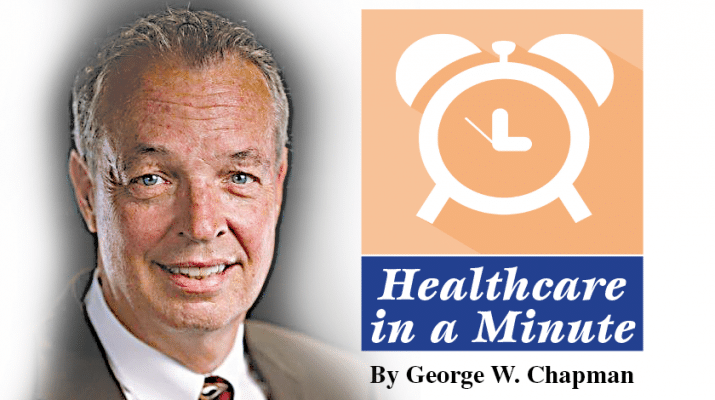COVID-19: Experts Believe Virus is Here to Stay
By George W. Chapman
The FDA will expedite the review process for manufacturers developing updates and boosters to counter the United Kingdom and South African strains or variants to the coronavirus. An advisory panel of independent experts will be charged with reviewing and approving the booster shots. Pfizer, BioNtech and Moderna boosters have already gone through the process. Most epidemiologists warn COVID-19 will not just go away even after we have achieved herd immunity or have it under control. Like the common flu, we may require annual boosters until a “one and done” shot is developed. The worldwide pandemic will be reduced to a manageable epidemic. In the meantime, President Biden has invoked the Defense Production Act to get more equipment and supplies to vaccine manufacturers for increased points of care and at home testing. The goal is to have 61 million home testing kits available by the end of summer. FEMA has awarded $1.7 billion to 27 states to establish community vaccine centers, especially in underserved areas. Overlooked and under appreciated is the role of primary care providers can play in the delivery of vaccines. Once supplies are adequate and distribution streams improved, primary care practices are clearly more appropriate for vaccine and booster administration than state fairgrounds, hospital parking lots and football stadiums.
ACA Open Enrollment Expanded
Millions of workers have lost their employer sponsored health insurance primarily due to the ravages of the pandemic. Via executive order, President Biden created a special expanded three-month open enrollment period from Feb. 15 thru May 15. The previous open enrollment period under the previous administration was only the last six weeks of 2020, Nov. 15 thru Dec. 31. The Association of Health Insurance Plans lauded the executive order and expressed no concern over possible “adverse selection.” (Adverse selection can occur when a previously uninsured person can enroll in a plan any time they want, versus only during a designated sign up or enrollment period. The fear is those who wait until they are sick or injured, then sign up.)
Medicare Ad Fatigue
If you’re wondering why the seemingly endless (and annoying) Medicare ads are still disrupting your favorite TV viewing long after Dec. 31, you’re not alone. In the past, all seniors were covered by “regular” or traditional Medicare. Since there was no choice, the government didn’t need to advertise. The ubiquitous ads ruining your viewing are run by Medicare Advantage plans that are administered by commercial insurers that are looking to sign newly eligible seniors as they turn 65 throughout the year. (Open enrollment, which runs October thru December, is for seniors already covered looking to switch plans.) Competition for members among commercial plans results in a lot of TV advertising. And for good reason. Forty percent of all Medicare eligibles belonged to a Medicare Advantage plan last year; and with the onslaught of savvy baby boomers turning 65, there is a lot at stake. Traditional or “regular” Medicare will probably phase out for adults without a disability, over the next several years as Medicare Advantage plans continue to grab most of the newly eligible seniors. There is another reason for the heavy advertising: huge profits. Many commercial carriers are making more money in Medicare Advantage plans than employer-based commercial plans. United Healthcare, for example, covered 3.5 million members last year and expects to add another 900,000 this year. United made $15.4 billion last year, despite the pandemic. The ads claim they may reduce the amount being withheld from your Social Security check for Medicare by $100 or so a month. That is accomplished by switching seniors from their traditional Medicare plan to Advantage plans.
Hospital Pricing
As of Jan. 1 hospitals must post “prices” for 300 “shoppable” procedures such as MRI, labs, consults, obstetrics, surgeries, psychotherapy. Unfortunately, it’s almost impossible for just about anyone to do comparison shopping. Warning: you may need psychotherapy if you try to do this. The problem is, Centers for Medicare and Medicaid Services left it up to the hospitals and didn’t provide many guidelines. Consequently, some posted spread sheets with “prices,” “fees” and “negotiated rates” while others provided online “cost estimators.” To add to the confusion, many don’t even use the universally accepted billing codes to easily identify the 300 procedures. So how do you compare? You can’t. As predicted here last year, this would be a mess. Regardless of trying to find the best deal, can the typical consumer really shop around? The hospital you select may not be in your network. Your chances of getting approval to go outside of your network for one of the routine “shoppable” services is probably zero. The physician you select for a consult or procedure may not be in your network or even have privileges at the hospital you select. Even if he or she does, it may not be their preference. So right now, until there is more uniformity, shopping around for the best deal is a fool’s errand.
Pandemic Preparedness
Another pandemic is inevitable. The Northeast Business Group on Health has developed a list of recommendations for employers so they aren’t caught off guard again. 1. Build a pandemic response plan; keep it simple. 2. Establish a safe workplace. 3. Enhance employee experience working from home. 4. Have a strong return to work plan. 5. Address employee benefits stressed by the pandemic, like behavioral care. Develop your vaccine strategy. 6. Plan for future pandemic or epidemic now.
George W. Chapman is a healthcare business consultant who works exclusively with physicians, hospitals and healthcare organizations. He operates GW Chapman Consulting based in Syracuse. Email him at gwc@gwchapmanconsulting.com.

